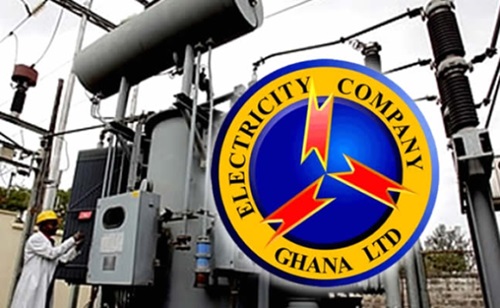The International Monetary Fund (IMF) has disclosed that government may introduce the suspended 15 percent value-added tax (VAT) on electricity if inflation rate continues to decline.
Government suspended the plan to implement the VAT on electricity after public outcry on the hardship the tax may bring on consumers, particularly residential.
However, the IMF in its July 2024 Country Staff Report hinted that government may implement the policy if inflation goes down.
“On the revenue side, implementation of VAT on residential electricity (expected yield 0.17 percent of GDP) was suspended due to strong social resistance. The authorities are committed to implementing this measure when the inflation dynamics are more conducive,” the IMF said on page 10 of the report.
The VAT on residential electricity was initially announced as part of revenue-generating measures under the IMF-supported COVID-19 recovery efforts.
A letter from the Ministry of Finance, signed by former minister Ken Ofori-Atta and dated January 1, 2024, directed the Electricity Company of Ghana (ECG) and Northern Electricity Distribution Company (NEDCo) to implement the VAT for residential customers above a specified consumption level.
Government suspends VAT on electricity
Government suspended the planned implementation of the 15 percent Value Added Tax (VAT) on domestic consumption of electricity on February 7, 2024.
This was after Organised Labour threatened a nationwide demonstration against the implementation of the tax.
Organised Labour at the time warned that it would demonstrate on February 13, 2024 if the policy was not totally withdrawn.
The Ministry of Finance in a response said "On behalf of the Government, Ministry of Finance would like to inform ECG and NEDCO to suspend the implementation of the VAT directive pending further engagement with key stakeholders, including Organised Labour."
"The Ministry expects that these engagements will birth innovative, robust, and inclusive approaches to bridging the existing fiscal gap, while bolstering economic resilience."
Current inflation trend
The Ghana Statistical Service has reported that annual inflation had slowed to a 28-month low of 20.9 percent in July.
This is the slowest pace since March 2022 – compared to 22.8 percent June this year.
Latest Stories
-
Bawumia joins thousands in Kumasi for burial prayers for Ashanti Regional Imam
35 minutes -
Blue Gold Bogoso Prestea Limited challenges government actions in court
1 hour -
Patrick Atangana Fouda: ‘A hero of the fight against HIV leaves us’
2 hours -
Trinity Oil MD Gabriel Kumi elected Board Chairman of Chamber of Oil Marketing Companies
2 hours -
ORAL campaign key to NDC’s election victory – North America Dema Naa
3 hours -
US Supreme Court to hear TikTok challenge to potential ban
3 hours -
Amazon faces US strike threat ahead of Christmas
3 hours -
Jaguar Land Rover electric car whistleblower sacked
3 hours -
US makes third interest rate cut despite inflation risk
3 hours -
Fish processors call for intervention against illegal trawling activities
4 hours -
Ghana will take time to recover – Akorfa Edjeani
4 hours -
Boakye Agyarko urges reforms to revitalise NPP after election defeat
5 hours -
Finance Minister skips mini-budget presentation for third time
5 hours -
‘ORAL’ team to work gratis – Ablakwa
5 hours -
Affirmative Action Coalition condemns lack of gender quotas in Transition, anti-corruption teams
5 hours

